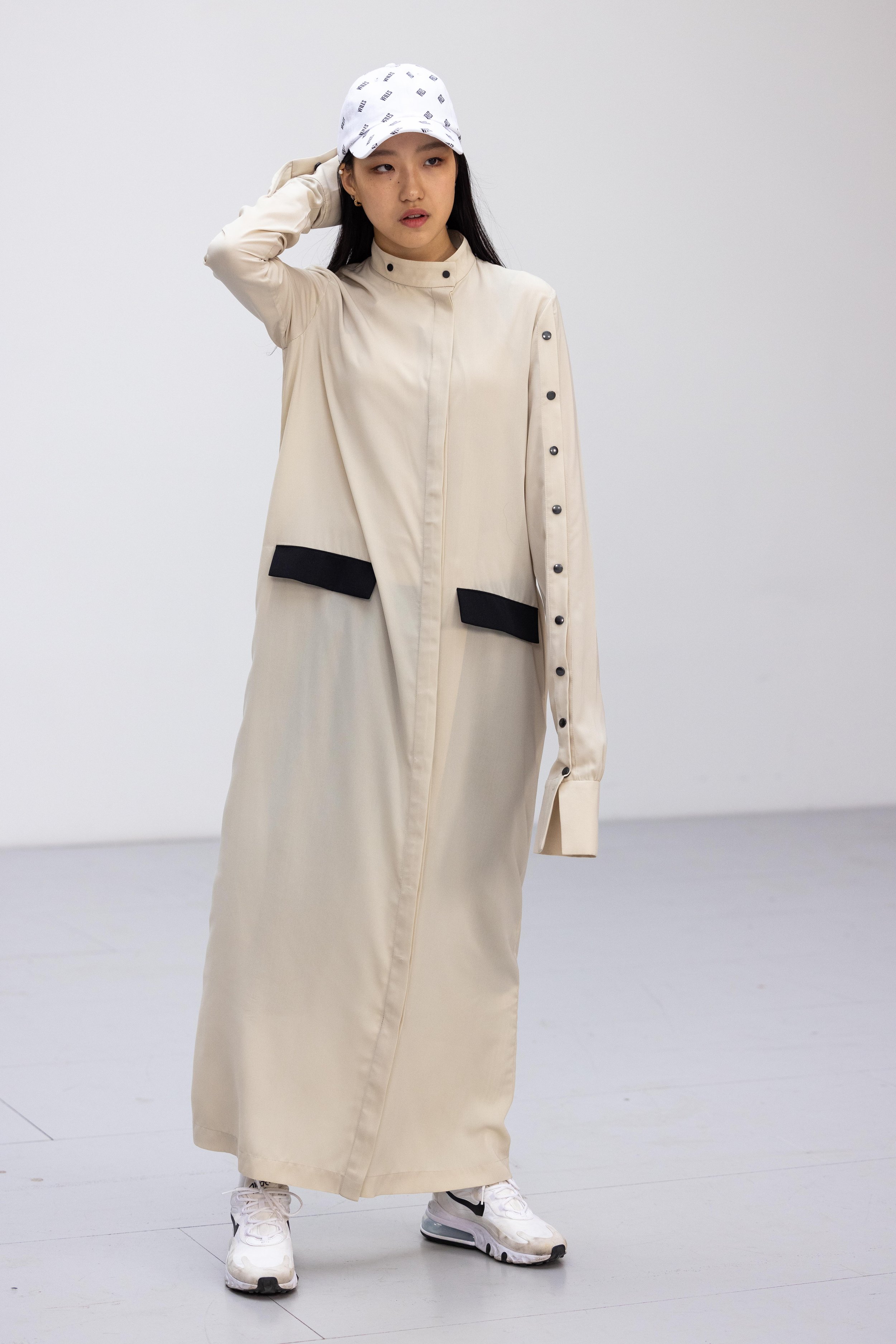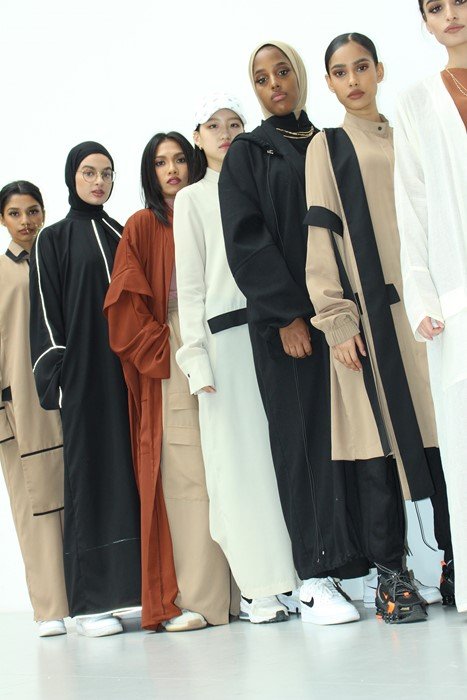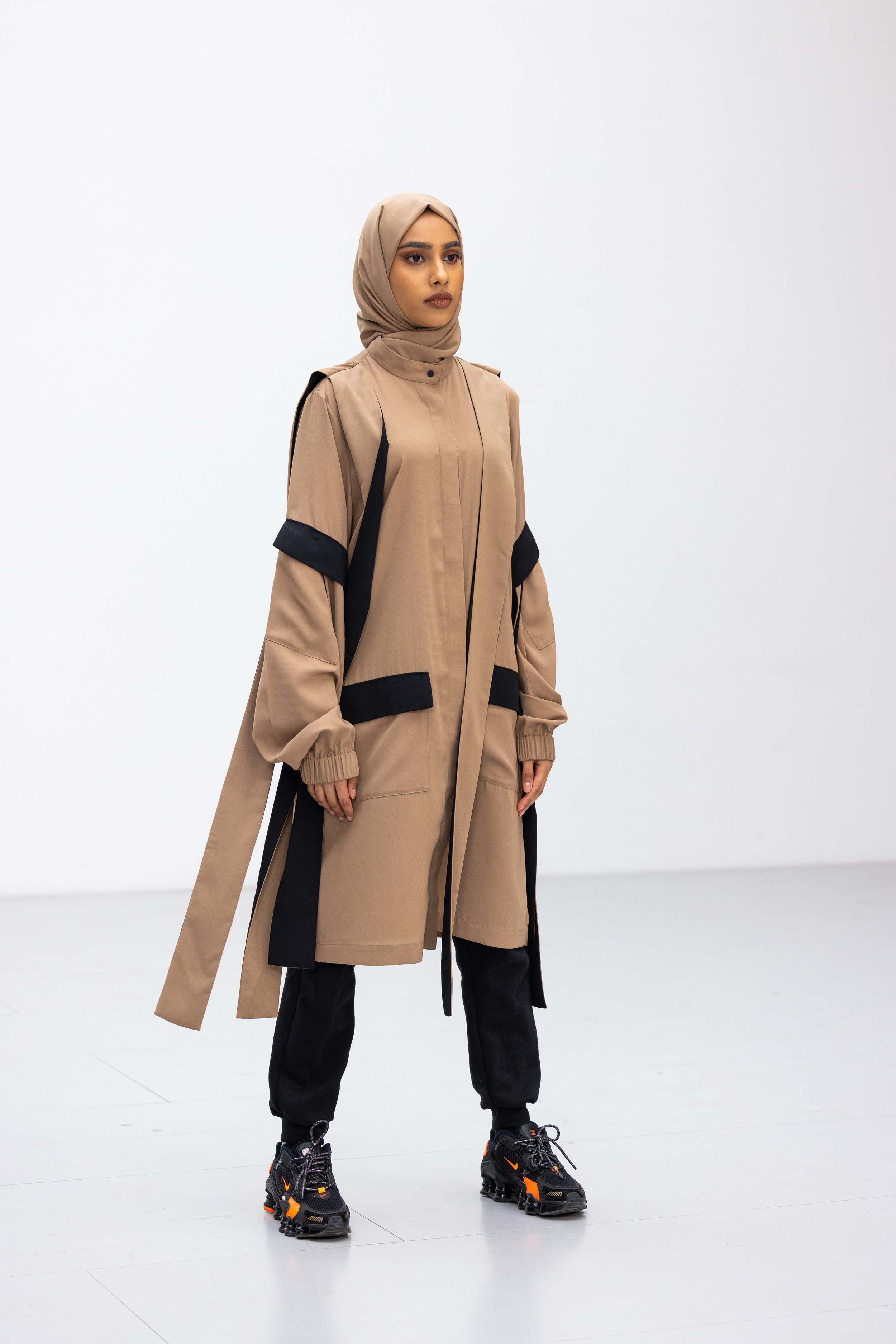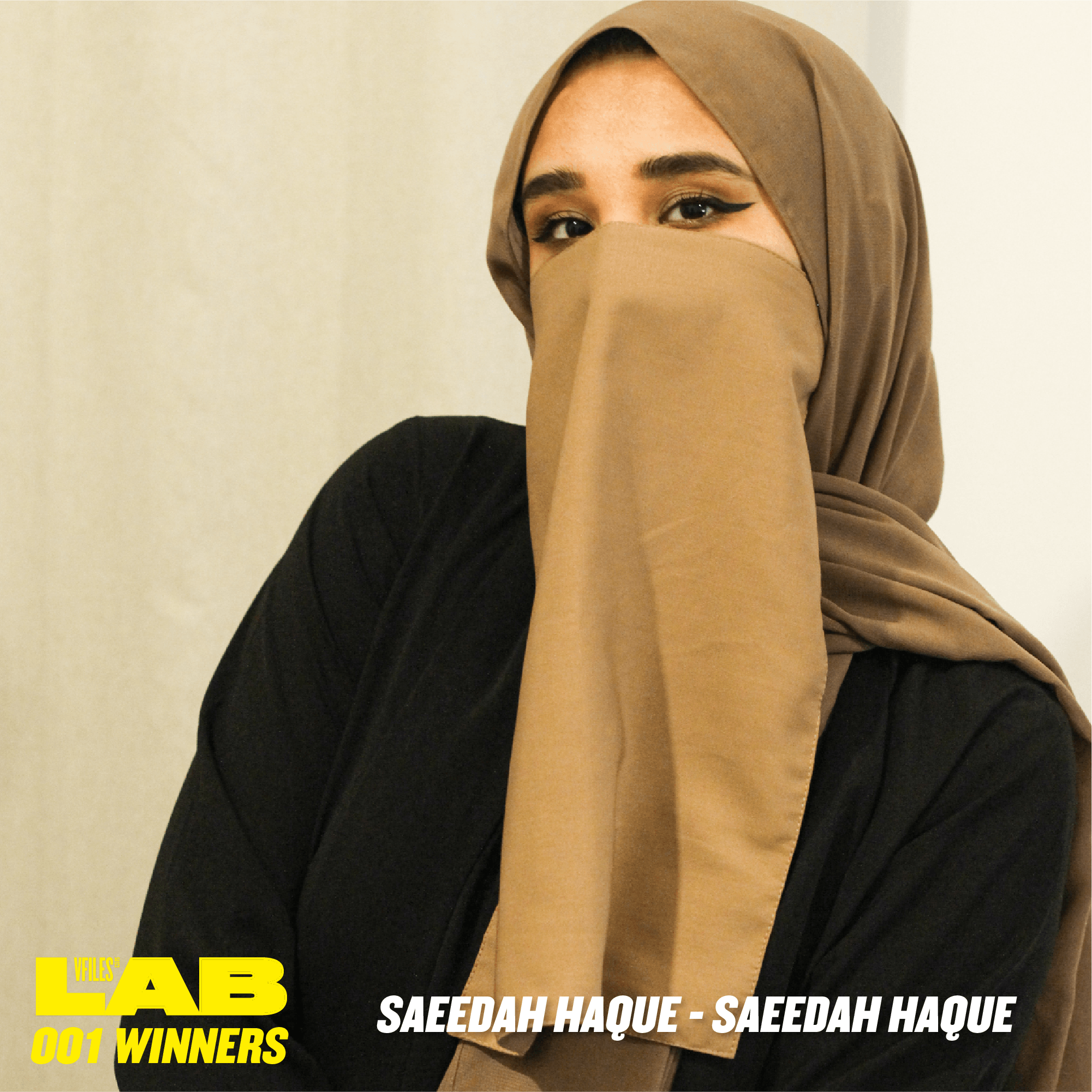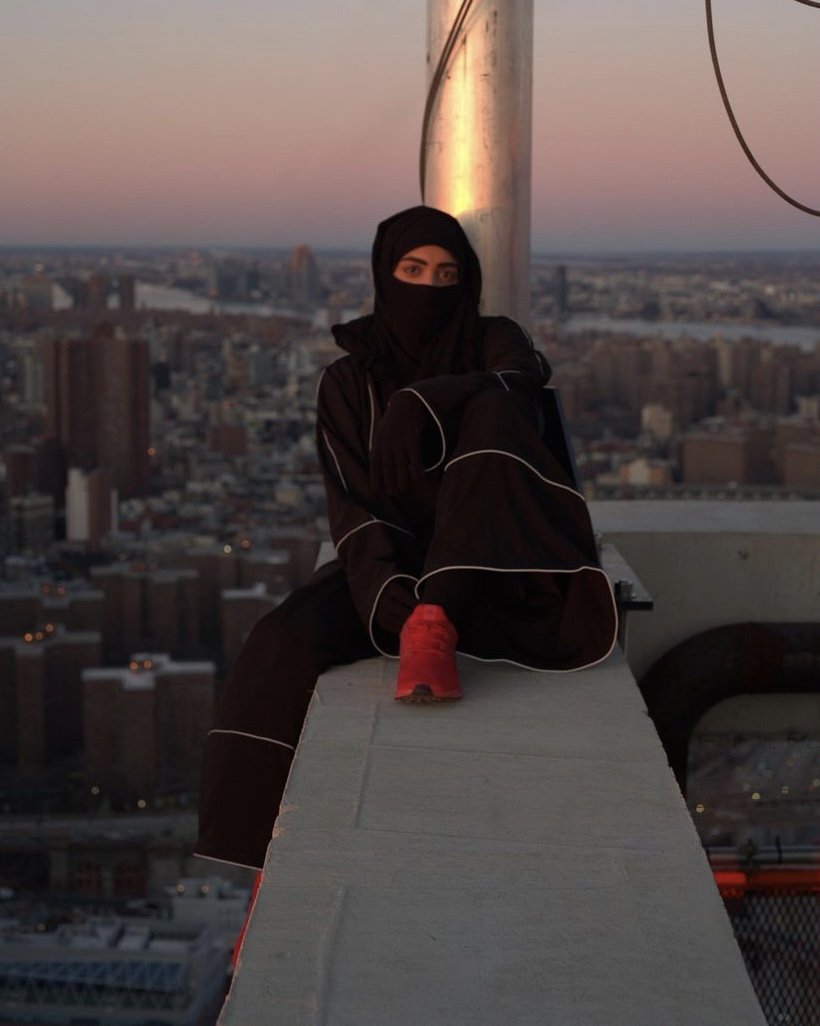Streetwear, No Compromise: Saeedah Haque
With fashion month rapidly coming to an end, now is the ideal time to calculate what this means for upcoming fashion brands and designers. Back in 2020 when Covid-19 burdened our lives, we saw many fashion names incorporating wellness and street sensibility into their lines. Aside from this, there were also many charging conversations around the relationship between fashion and social issues. One dominating woman being Muslim Bangladeshi street-style fashion designer: Saeedah Haque, who is based in London. Her fashion brand is a contemporary exploration of the ‘orthodox’ abaya; her garments are reimagined using streetwear with influences taken from Japanese and Middle Eastern aesthetics. Haque’s first ever collection was showcased during SS21 at the prestigious VFILES Lab runway show, which has resulted in her brand being published in Vogue, Complex, Dazed and Grazia.
As a young girl, Haque led quite an active lifestyle so this was something she kept in mind when curating her own style along with the fact that her clothing had to be modest. The goal was to always style clothes in a manner which was not constricting and ultimately comfortable and suitable mobility-wise with grungy and utilitarian undertones. Haque found herself experimenting and creating outfits using clothes from sportswear brands such as Nike and East Asian online fashion stores like YesStyle. In addition to this, she planned to study fashion at university but instead graduated in Business and Human Geography, which focuses on worldly issues. It was not long after that she realised how integral fashion was within what she studied but the clothes she wanted to create had to say something, similar to designers such as Pierre Moss and publications featured on Daily Paper. The intent behind her brand is to spin the narrative using streetwear, to empower women whose bodies are often politicised whilst also purposefully challenging the traditional stereotype that a Muslim woman should dress "feminine" and "soft".
Operating as a one-woman team, Haque has created a valuable creative space which also acts as a voice for women who share the same ideals as her. On the topic of the streetwear industry, she spoke about the disparity in this sector through its male-dominated nature. As a Muslim WoC, streetwear designer she is not easily swayed into making compromises for the sake of ‘hype culture’ in the industry and we see this through the way she carries her personal image as a Muslim designer and that of her brand when it comes to being sustainable and ethical. Her resilience in wearing her niqab when working alongside names such as Vogue and Tom Ford have only solidified the message of her ethos and those she’d like to represent. The Ready-to-Wear collection was released in SS21 during a period when the hijab ban was being discussed in France. Haque took this opportunity to speak on the topic for Millennial Muslims using the VFILES Lab runway show where she was selected to showcase her first collection. A feature of the VFILES show that deserves to hold more significance was the accompanying video where there were several Muslim women participating in sports and other hobbies. This aspect of normalisation became a natural juxtaposition to the bigotry within mainstream media. The garments were vastly focused on Haque’s taste: oversized, using lightweight and also thicker materials such as nida, linen and cargo paired with tasteful details such as pockets, hoods and buttons — adaptable for any season. Her pieces are priced from £85+, featuring ethically sourced fabrics and made-to-order by herself.
In a time where women are often reduced to the way they dress, Haque elevates her targeted community of females using social media through Tik Tok and Instagram. Most recently, Kim Kardashian’s Balenciaga look at the Met Gala was the topic of conversation on Haque’s social media; a white woman idolised for creating a fashion statement in a full black look, which included her face being covered. On one hand, there is a valid argument that this is a problematic stunt, contributing to the erasing of identity, as Muslim niqabi women are subject to discrimination when this is their everyday dress. Conversely, it is reasonable to ask why fashion brands can’t take these opportunities to give representation to those women who are negatively targeted in the media, rather than unnecessarily furthering someone’s public influence. This is where Haque is one step ahead: the visual forefront of this year’s collection will be celebrating those women who choose to cover fully.
With the wider industry valuing the success of the first Muslim streetwear designer, Saeedah Haque, it’s imperative to remember the significance of any voice for the oppressed, even if it’s through the embodiment of a piece of clothing.
Saeedah Haque interviewed by Aaishah Perager
Shop Saeedah Haque’s collection drops here: https://saeedahhaque.com/
Social Media:
Instagram: @saeedahhaque
Tik Tok: @saeedahhaque

